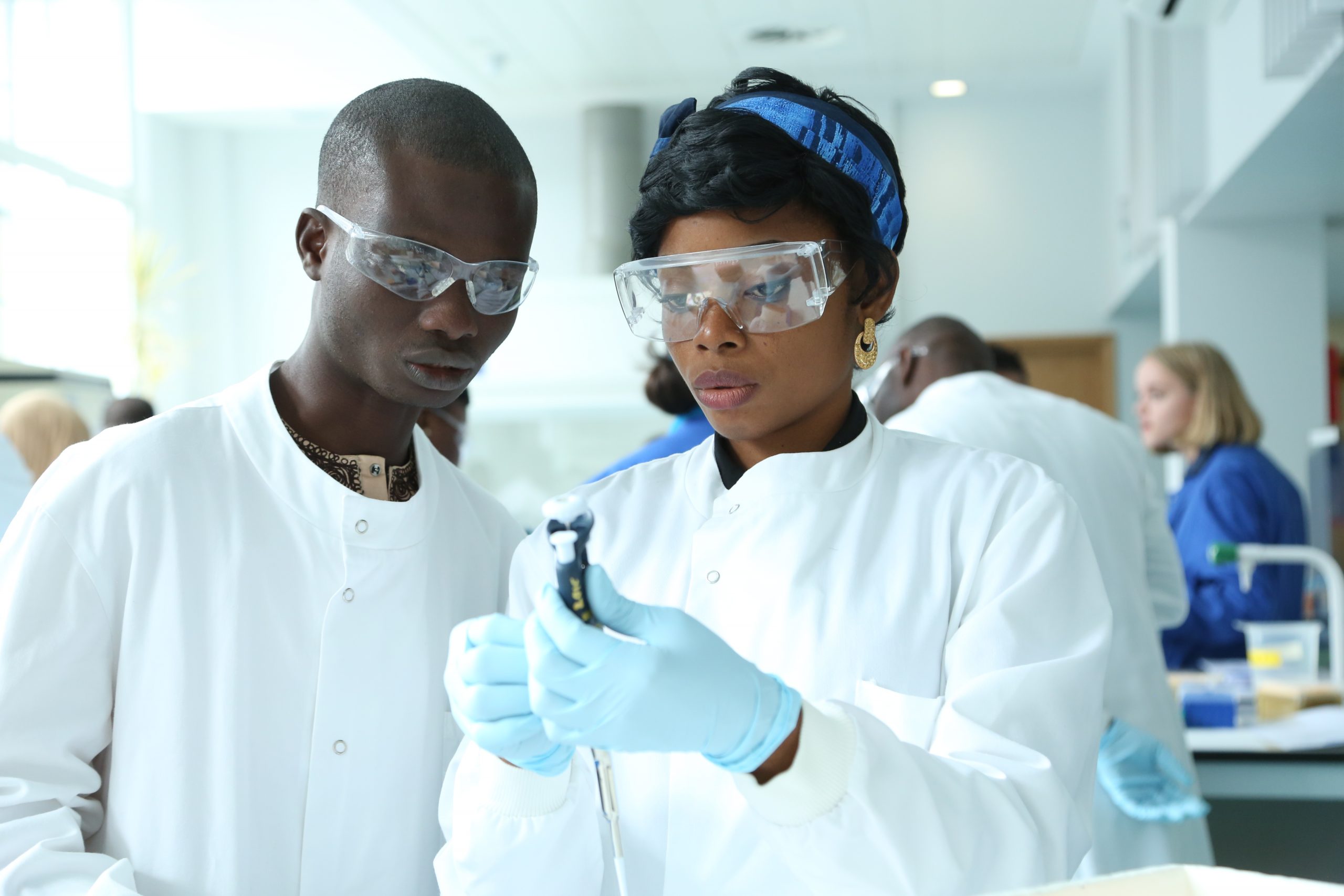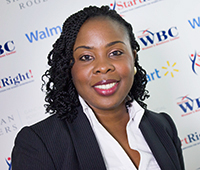
Carol Ibe attended the Bill & Melinda Gates Foundation meeting in Berlin following her second annual training workshop and symposium for African research scientists.
By investing in training and research capacity building in Africa, we will enable a larger research community who can solve food insecurity and other problems on the continent, as well as mentor the next
Carol Ibe
generation.
A Gates Cambridge Scholar was invited to take part in the annual Bill & Melinda Gates Foundation's Grand Challenges meeting in Berlin this week.
Carol Ibe [2015] spoke about her PhD research in Plant Sciences and her non-profit organisation JR Biotek Foundation in the Crop Research Track Session of the Grand Challenges meeting. She also participated in a comprehensive Leadership and Management Skills Course sponsored by the Bill & Melinda Gates Foundation in the lead-up to the Grand Challenges meeting. Grand Challenges is a family of initiatives fostering innovation to solve key global health and development problems.
Carol’s research focuses on the association of rice roots with beneficial and detrimental fungi, and how these interactions may be modified and/or optimised for practical agricultural applications. She set up the JR Biotek Foundation in 2013 to develop and provide high-quality scientific laboratory training and teaching resources to Africa-based research scientists, lecturers and students. Her participation in the Grand Challenges meeting follows JR Biotek Foundation's second annual hands-on Molecular Laboratory Training Workshop and the UK-Africa Food Security Symposium, which took place at the University of Cambridge from 3rd-12th September 2018.
The workshop brought together 17 PhD researchers from six African countries (Nigeria, Ghana, Ethiopia, Kenya, Zimbabwe and Benin Republic) to participate in the hands-on scientific laboratory training course, and subsequently joined 80 other research and non-research professionals in the symposium. With support from the Department of Plant Sciences and partners from the university, 15 PhD students were fully sponsored to participate in the workshop held in Cambridge.
The workshop was designed to provide Africa-based researchers with both theoretical and practical knowledge in core molecular biology concepts, laboratory techniques and applications in agricultural research. The event included a keynote lecture from Professor Sir David Baulcombe on 'The application of biotechnology for disease resistance in crops in Africa (and other regions)' and a presentation from Dr Nicola Patron from the Earlham Institute in Norwich on 'The application of new bio-engineering technologies in crop agriculture'.
Lectures on plant physiology and general molecular biology laboratory techniques were presented by postdoctoral researchers and PhD students from the University of Cambridge’s Department of Plant Sciences including Gregorious Reeves, a Gates Scholar/PhD student, and this was followed by a day of training on bioinformatics and statistical analyses as well as an academic writing masterclass.
Carol said: "I studied microbiology at an African university that lacked modern teaching and research laboratories. We relied heavily on theory-based learning, mostly using teaching materials and methods that did not meet the global standard. This problem is limiting the ability of many intelligent students in Africa to compete globally and to contribute to the sustainable development of their countries through research and innovation, and these are the problems we are looking to solve through our training and capacity-building initiatives."
The UK-Africa Food Security Symposium brought together delegates from universities, research institutes, NGOs and businesses from Africa and the UK to exchange knowledge and develop new partnerships to help address food insecurity in Africa. The symposium included a keynote address by Dr Debisi Araba, the Regional Director for Africa at The International Center for Tropical Agriculture, and panel sessions highlighting the challenges contributing to food insecurity in African countries, and how effective and equitable partnerships between UK and African researchers can help solve the problems.
There were two interdisciplinary panels on how effective and equitable regional (Africa-Africa) and international (UK-Africa) research partnerships can address food insecurity in Africa and how international partnerships can be leveraged to build capacity for research conducted by African researchers in African research institutions, especially in universities across the continent. The symposium ended with the Bio-innovation for Africa pitching competition where individuals and teams of African PhD students presented their business/start-up ideas that were all designed to find solutions to the problems faced on the continent. The contestants of the competition were all participants in the hands-on scientific laboratory training workshop that was hosted at the Department of Plant Sciences the week before the symposium. The winning team won a prize of £1,500 for their sustainably produced seeds enterprise EcoSeed, which the two PhD students from Benin Republic had started with money they had saved from their scholarships.
Carol created the ‘Bio-innovation for Africa’ pitching challenge to encourage African scientists to become proactive in finding solutions to the many challenges faced on the continent, especially in agriculture. She said: "By investing in training and research capacity building in Africa, we will enable a larger research community who can solve food insecurity and other problems on the continent, as well as mentor the next generation."
*You can watch the video on JR Biotek's work here.

Carol Nkechi Ibe
- Alumni
- United States
- 2015 PhD Plant Sciences
- Newnham College
I was born in the United States but grew up in Nigeria, where I completed a BS in microbiology. In pursuit of a better education and career, I returned to the US and did a master’s in molecular biology and biochemistry with a specialization in biotechnology from the Georgetown University, and subsequently, a master’s in clinical embryology from the University of Oxford. During my studies at Georgetown, I became inspired to start JR Biotek, a life science education company that provides quality biotechnology and life science education, training and laboratory capacity building programs to students, educators and scientists in Africa. My vision is to help build a powerful workforce that can advance scientific research and innovation in Africa, especially within the field of agriculture. I am also very passionate about developing more effective and practical solutions to food insecurity in sub-Saharan Africa, and this influenced my decision to study plant science. My PhD research will aim to determine the commonalities and differences during intracellular rice root colonization by both beneficial and detrimental fungi, and how these associations may be enhanced for practical agricultural applications. Rice is a major staple food in many African countries; therefore, developing rice cultivars with better adaptations to low-input rice agroecosystems is crucial for achieving food security in the continent. This is the ultimate goal of my PhD. I am deeply honored to receive the Gates Cambridge scholarship, a life changing award that would allow me to improve the lives and careers of many in Africa.
Previous Education
University of Oxford
Georgetown University












